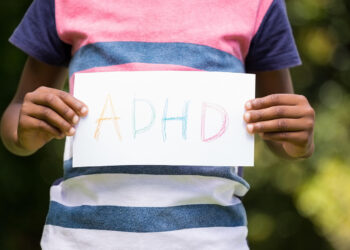Older individuals with apparent skeletal muscle mass loss were at greater risk of developing dementia, researchers found.
People with low temporalis muscle mass — a set of jawbone muscles linked to changes in whole-body skeletal muscle mass — had nearly 60% greater risk of developing dementia than people who had a larger muscle mass (HR 1.59, 95% CI 1.09-2.33, P=0.016).
After more than 5 years of follow-up, about 3.5% of participants with low temporalis muscle mass showed signs of dementia compared with 2.5% of those with larger temporalis muscles, reported Kamyar Moradi, MD, a postdoctoral researcher at Johns Hopkins University School of Medicine in Baltimore, during the Radiological Society of North America annual meeting in Chicago.
“Measuring temporalis muscle size as a potential indicator for generalized skeletal muscle status offers an opportunity for skeletal muscle quantification without additional cost or burden in older adults who already have brain MRIs for any neurological condition, such as mild dementia,” Moradi noted.
This is the first longitudinal study to suggest skeletal muscle loss may be related to future dementia, he added.
“As we age, we develop loss of muscle mass, and interestingly muscle mass is often observed among those people with dementia,” Moradi said. “This observation led us to ask: Could there be a direct link between muscle loss and development of dementia?”
Age-related skeletal muscle loss, which is potentially modifiable, is often seen in older adults with dementia, the researchers noted. Previous studies have shown that the temporalis muscles can reflect overall muscle loss throughout the body.
“Thus early detection of means interventions targeting muscle loss, such as physical activity or nutritional support, might potentially prevent or slow down muscle loss and that may also reduce the risk of developing dementia,” Moradi said. “We believe this offers a new avenue for early intervention strategies in the fight against dementia.”
In commenting on the study, Max Wintermark, MD, chair of neuroradiology at the University of Texas MD Anderson Cancer Center in Houston, told MedPage Today that these findings should be viewed with caution.
“I always consider associations with a grain of salt, because many spurious associations exist,” Wintermark said. “In this particular case, it is hard to know if muscle loss is truly a risk factor for dementia or the consequence of the processes that lead to dementia.”
However, working to maintain muscle mass makes sense, Wintermark agreed. “In general, having a healthy lifestyle with appropriate exercise is beneficial in many ways, including maintaining one’s muscle mass,” he said.
To determine temporalis muscle size, Moradi and colleagues examined MRI scans from 621 participants age 70 or older (mean age 77) without dementia from baseline T1 brain MRIs in the Alzheimer’s Disease Neuroimaging Initiative cohort. The authors manually segmented the bilateral temporalis muscles and calculated the sum cross-sectional area of these muscles. Based on the cross-sectional area, participants were categorized into two distinct groups: 488 people with small and 131 people with large cross-sectional area, based on a threshold of 1,076.4 mm² to distinguish the two.
Over a median follow-up period of 5.8 years, the group followed patients for dementia onset, changes in cognitive function and performance, and brain volume alterations.
People with smaller temporalis muscle mass were more likely to develop dementia, after adjusting for other known risk factors like age, gender, education, and body mass index.
“They also showed greater decline in memory, functional activities, and brain volumes over time,” Moradi said.
The study showed that the low muscle mass group had greater decrease in memory composite score, functional activity questionnaire score, and structural brain volumes, including whole brain, hippocampus, entorhinal cortex, and fusiform gyri over the follow-up period (all P
One limitation of the study was lack of repeat MRI measures to determine changes in muscle mass over follow-up.
Disclosures
Moradi and Wintermark disclosed no relevant relationships with industry.
Primary Source
Radiological Society of North America
Source Reference: Moradi K, et al “Skeletal muscle loss is associated with increased risk of dementia-related outcomes: Longitudinal observational study using ADNI brain MRIs” RSNA 2024.
Source link : https://www.medpagetoday.com/meetingcoverage/rsna/113236
Author :
Publish date : 2024-12-05 19:58:16
Copyright for syndicated content belongs to the linked Source.


![author['full_name']](https://newshealth.biz/wp-content/uploads/2024/12/Muscle-Loss-May-Portend-Future-Dementia.jpg)












